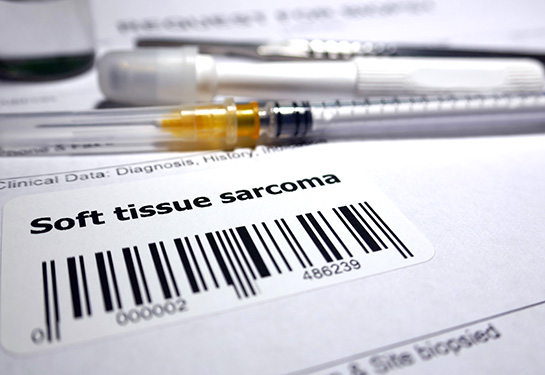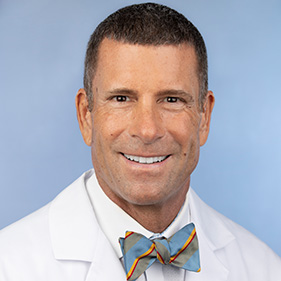First-ever genetic map to identify causes of sarcoma
UC Davis taking part in large global research study that provides biological insight into the cancer
New groundbreaking research published in the journal Science unlocks the genetic mystery of why some people develop sarcoma, an aggressive but less common cancer that often strikes children and young adults but can affect people of any age.
The findings of this first-of-its-kind research study involved investigators from around the world at major sarcoma centers, including UC Davis Comprehensive Cancer Center. Among the researchers participating was sarcoma surgeon and chair of the UC Davis Department of Orthopaedic Surgery R. Lor Randall, who was a co-author of the study. Randall provided his expertise on the molecular makeup of sarcoma tumors and provided critical genetic material from his sarcoma patients for the research analysis.
“This potentially paradigm-setting work reflects a concerted global effort on the part of sarcoma thought leaders to understand the mechanistic underpinnings for a possible heritable contribution to this devastating disease.” Randall said. “I am humbled and very grateful to have been asked to participate. Furthermore, I want to recognize and thank UC Davis for the tremendous commitment to our sarcoma program as we make impactful discoveries and deliver world-class care.”
The findings have wide implications for people living with sarcoma—allowing detection of the cancer earlier and potentially improving survival for patients.
This potentially paradigm-setting work reflects a concerted global effort on the part of sarcoma thought leaders to understand the mechanistic underpinnings for a possible heritable contribution to this devastating disease.”—R. Lor Randall Chair, UC Davis Department of Orthopaedic Surgery
Sarcomas are cancers arising in the bone and soft tissue. According to the Sarcoma Research Foundation of America, they make up 1% of the cancers in adults, but 15-20% of childhood cancers in the U.S.
To date, there has been little research on the genetic basis of sarcomas, but the global study led by Omico, the Garvan Institute of Medical Research and UNSW Sydney has generated the first comprehensive genetic map of sarcomas, identifying several new important genes that, when inherited, can cause the deadly cancer.
The Australian-led research revealed that 1 in 14 individuals diagnosed with sarcoma carry a clinically important gene that explains why the cancer arose. In addition, the research team identified a previously unrecognized genetic pathway specific to sarcomas, which may lead to understanding cancer biology that will improve health outcomes.
Lead author of the study was Professor David Thomas, CEO of Omico, head of the Genomic Cancer Medicine Laboratory at the Garvan Institute of Medical Research and conjoint professor at the UNSW Medicine & Health.
Thomas summarized why the research is so important: “Cancer is fundamentally a genetic disease and genomics is the key to unlocking its secrets. This international collaboration has developed new methods for mapping the genetic basis for cancer and identified new heritable pathways that increase cancer risk. The findings fill important gaps in the missing heritability of cancer.”
The research used data collected from more than 3,500 families recruited from 23 cancer centers in seven countries.
UC Davis Comprehensive Cancer Center
UC Davis Comprehensive Cancer Center is the only National Cancer Institute-designated center serving the Central Valley and inland Northern California, a region of more than 6 million people. Its specialists provide compassionate, comprehensive care for more than 100,000 adults and children every year and access to more than 200 active clinical trials at any given time. Its innovative research program engages more than 240 scientists at UC Davis who work collaboratively to advance discovery of new tools to diagnose and treat cancer. Patients have access to leading-edge care, including immunotherapy and other targeted treatments. Its Office of Community Outreach and Engagement addresses disparities in cancer outcomes across diverse populations, and the cancer center provides comprehensive education and workforce development programs for the next generation of clinicians and scientists. For more information, visit cancer.ucdavis.edu.





